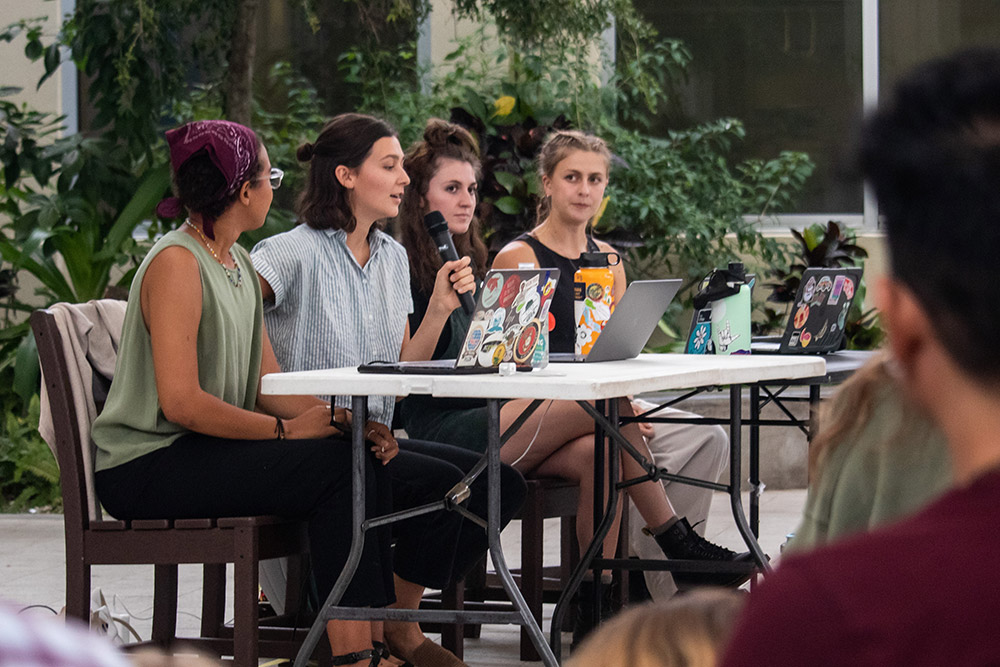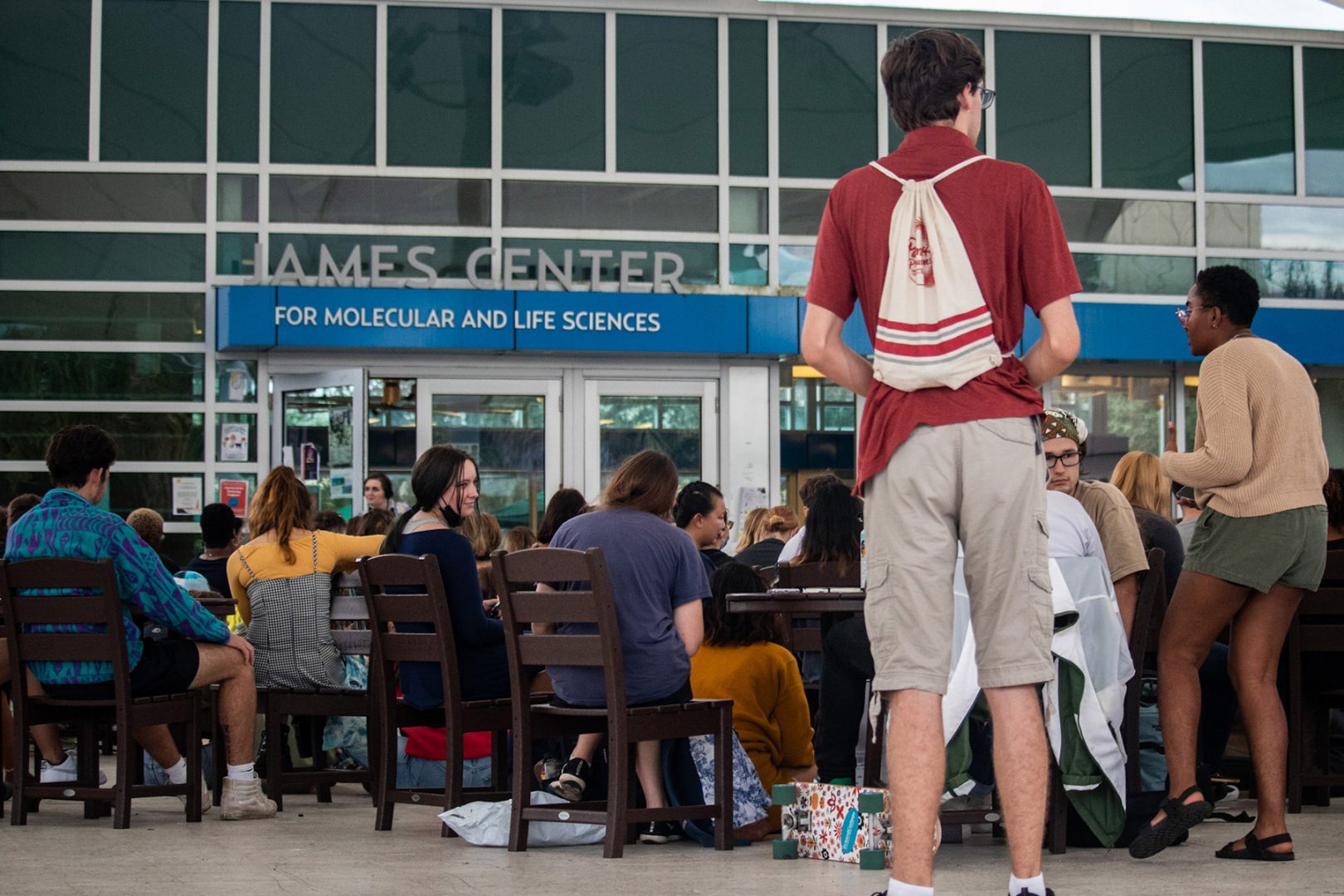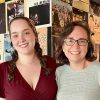More than a 100 students, faculty and staff gathered on Nov. 4 under the white canopy on the patio of the James Center for Molecular and Life Sciences ready to hear the meaning behind the question “Is your whiteness showing?”
Eckerd College seniors Katie Genovesi, Alex Gordon, Leah Totman and Summer Vishnu had answers—even if they were discomfiting. The College Program Series event was the culmination of a yearlong service project geared toward advancing racial justice at Eckerd College.
“This conversation is hard, it’s personal and it takes consistent work,” says Alex, a political science and environmental studies student from Houston. “Oftentimes, people are excited to engage in racial justice work but aren’t fully ready to deep-dive into dealing with their own personal experiences and whiteness or don’t have the tools to do so, which is a big reason we wanted to create the site, providing those tools.”
Inspired by their charge as the inaugural cohort of the Donald and Christine Eastman Citizenship and Leadership Program, the four women decided their required service project would focus on race relations on campus. Work began shortly after the George Floyd protests of 2020 and launched following a period of high tensions on campus that culminated with a protest of the Eckerd College Afro American Society in spring 2021. The Eastman Leaders consulted with the program’s faculty director, Associate Professor of Religious Studies Amy Langenberg, Ph.D., before turning her seminar content into a teaching moment for a broader audience. One night, the group painted a campus student-expression billboard white and added the phrase “Your whiteness is showing” in bright red spray paint. A QR code led to a website full of scholarship on positionality and resources to help students learn common definitions, and the website expired four days later.
“That first meeting [of the Eastman Leaders] was full of probably hundreds of ideas and different directions we could take this website in. We arrived at this topic after thinking about what impact we wanted our service project to have,” Alex says. “As part of the Eastman Program, we are required to do a group service project. We chose the slogan ‘Your Whiteness is Showing’ because we wanted something that would leave a sustainable impact while supporting our community in the spring of 2021; conversations about race were really at the center of a lot of discussion at Eckerd.”
The backlash was immediate. From vandalism to being called racist on social media, the Eastman Leaders were inundated with a visceral response to their provocation.
“We knew there was only so much we could realistically do in response to the launch, so we had to really lean on each other coming out of all of the backlash,” Alex recalls. “Fighting back or attempting to explain ourselves would be futile, so we really learned to step back and try to let our work speak for itself.”
Once the site expired, the group gathered feedback from educators, including Eckerd College President Damián Fernández, and revised the campaign to be relaunched in the fall. This time, the site would live on, the conversation would take place in person and provocation would be presented as a question: “Is your whiteness showing?” People still chafed at the revision but were eager to engage with the question at the event on Nov. 4.
Attendees were given the floor to ask questions of the Eastman Leaders anonymously through virtual submissions or aloud at microphones. The conversation was raw at times. Alex shared her trauma over being told by others that her approach to helping her community as a Black woman was actually harming them instead. Each Eastman Leader took a turn explaining the scholarship they’d studied and why confronting these societal determinants was vital to actually achieving equity in the country. It was the start of a lifelong exploration, made possible by a scholar program founded in honor of President Emeritus Donald R. Eastman III and his wife of 50 years, Christine.
“Being an Eastman Leader has given us all a community we did not have before our junior year,” Alex says. “The four of us have learned so much about topics we never even imagined we would dive into, and [the program] has given us such a strong foundation for doing leadership work as we prepare to graduate.”














